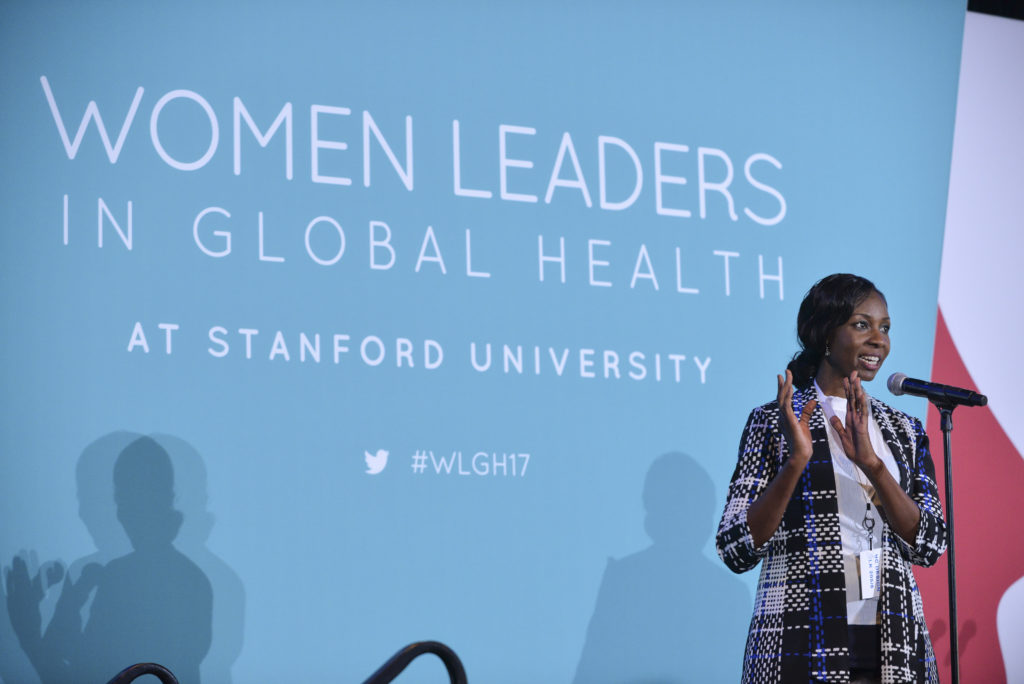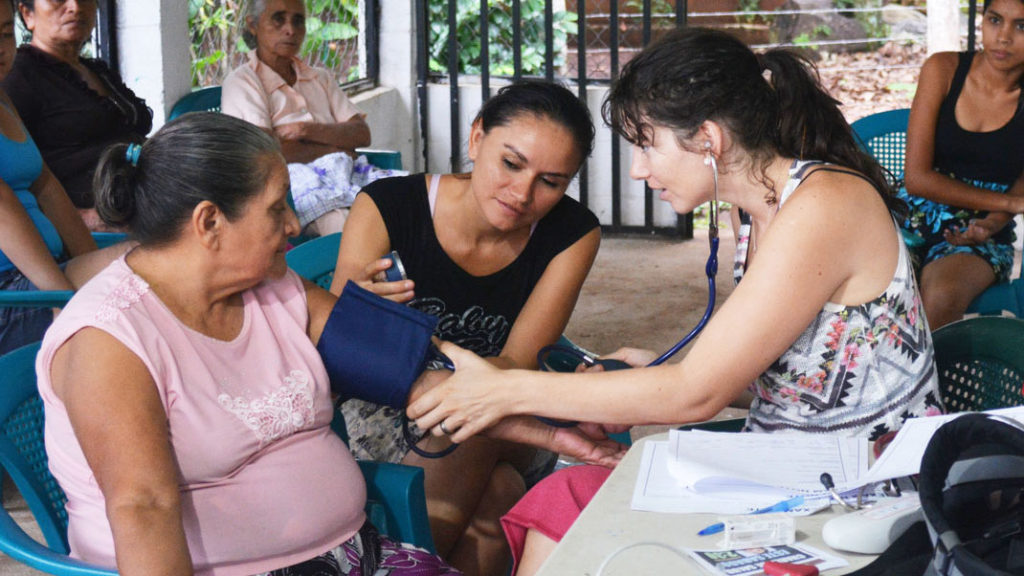Published: 03/01/2021

This international women’s day, we in the global health community choose to challenge the status quo.
Despite comprising 70% of the global health workforce, women hold only 25% of leadership positions, an inexcusable disparity that compromises health outcomes and initiatives around the world. At Stanford’s Center for Innovation in Global Health we have been tackling this issue head on, and this International Women’s Day, we invite you to join the movement.
In 2020, we launched WomenLift Health, an organization dedicated to expanding the power and influence of talented and diverse women in global health and to catalyzing systemic change to achieve gender equality in leadership. Founded by Dr. Michele Barry, Director of the Center for Innovation in Global Health, and led by Amie Batson, Executive Director, WomenLift Health was born out of the Women Leaders in Global Health Conference that began at Stanford four years ago and has spread globally. Now, with funding from the Bill & Melinda Gates Foundation, we have hit the ground running, assembling thousands of people around this central and critical goal.
WomenLift Health is based on the belief that advancing diverse women leaders will result in more robust decision-making that benefits from broadened perspectives, talents and lived experiences, ultimately leading to improved health outcomes for all.
“WomenLift Health has already passed some tremendous milestones in its first year,” said Dr. Barry. “Today, we are proud of those accomplishments, but there is much, much more to come.”
Change at Scale
The COVID-19 pandemic has hit women hard – exacerbating the inequalities in our health and economic systems. This year has seen dramatic spikes in domestic violence, loss of employment for women, reductions in sexual and reproductive health services and incredible sacrifice by the predominantly female health care workforce. Experts worry the pandemic could set back gender equality for decades.
But the pandemic has also presented opportunities. Women at every level are redefining what it means to be an effective leader in the 21st century – and nowhere is it more evident than in the decisions women leaders are taking to curb the spread of the virus. It is clear that gender parity in leadership is more than an issue of equity: it is the missing link that will help us solve complex health challenges.
WomenLift Health is based on the belief that advancing diverse women leaders will result in more robust decision-making that benefits from broadened perspectives, talents and lived experiences, ultimately leading to improved health outcomes for all. Over the past year, we have brought that idea one step closer to reality, despite the disproportionate effects of COVID-19.
In early 2020, WomenLift Health launched the inaugural Leadership Journey – the highest caliber Leadership Program for women in health. The Leadership Journey provides women leaders with personal coaches, mentors and peer support to which many women leaders have never had access.

The leadership cohort, however, is just the tip of the iceberg. As the pandemic continues to test the resilience of health systems and exacerbate existing inequalities, the speaker series has brought together dynamic women and men from around the world to explore gender and power dynamics in health and outline action we can take to prioritize women’s leadership. It has featured such accomplished leaders as Helen Clark, former Prime Minister of New Zealand and Ellen Johnson Sirleaf, former President of Liberia, among others.
The 4th annual Women Leaders in Global Health conference also took place virtually in October, with two distinct days on women’s leadership in South Asia and Africa and culminating in a day of global dialogue. The conference demonstrated an absolute commitment to inclusivity by amplifying diverse voices, prioritized women from countries underrepresented at global health decision-making tables and hosted provocative conversations on critical topics. More than 2,300 people from 50 countries gathered to help shape a collective vision for diverse women’s leadership in health.
“The COVID pandemic has shown us just how important diverse leadership is to solving global health issues,” said Amie Batson, Executive Director of WomenLift Health. “We invest in talented women leaders, but we know it is not enough to just focus on the individual – this is not about ‘fixing women’ but changing organizations and society. We also have to influence the environment where women live and work, transforming the policies and norms that impact them every day.”
On the Horizon
A recent WHO report summed it up well: Women deliver global health – men lead it. By 2030, we believe global health leadership must reflect the impassioned and diverse workforce that comprises our community, which is why WomenLift Health put together a 10-year plan with ambitious targets.

This year, WomenLift Health will launch its second Global Leadership Journey cohort and expand our reach to India and East Africa, working with partners to launch the Leadership Journey and Workshops for women in these geographies. Our speaker series will continue with a regional focus and led by country partners. And of course, the annual Women Leaders in Global Health conference will continue to be a highlight. COVID-19 permitting, the 2021 WLGH event will be hosted by partners in India.
Over the next 10 years, we plan to reach tens of thousands of women through a portfolio of interventions at the individual, institutional, and societal levels. We will expand to serve women in 25+ countries — employing a country-owned and country-led model where the strategy and interventions are led, designed, and executed by and with local partners.
“At this critical moment in the fight for gender equality in health leadership, WomenLift Health is more important than ever,” said Dr. Barry. “Change will only happen if we are deliberate about placing women and girls at the center of recovery efforts – that means prioritizing their leadership in all of our institutions, at every level.”
Join us this International Women’s Day for, March 8 at 4:00pm PT, “International Women’s Day: Celebrating Women’s Leadership in Global Health“. Register and learn more here.